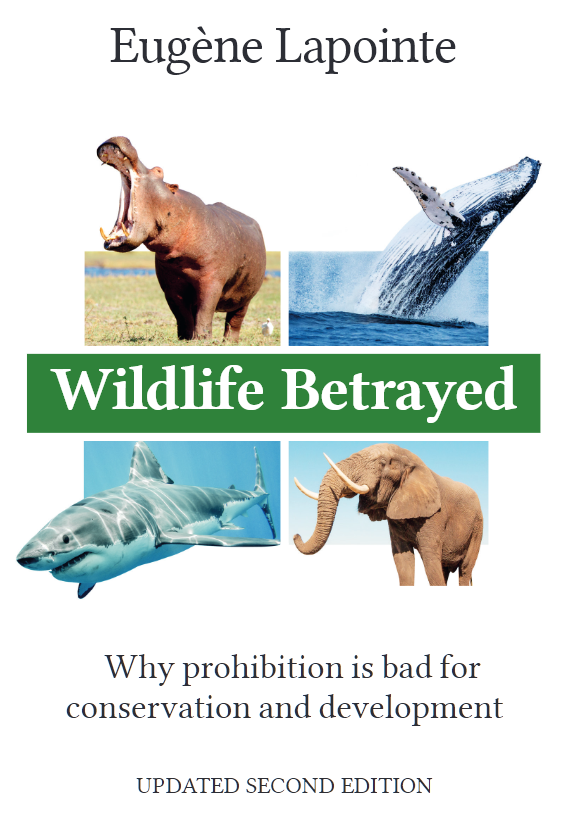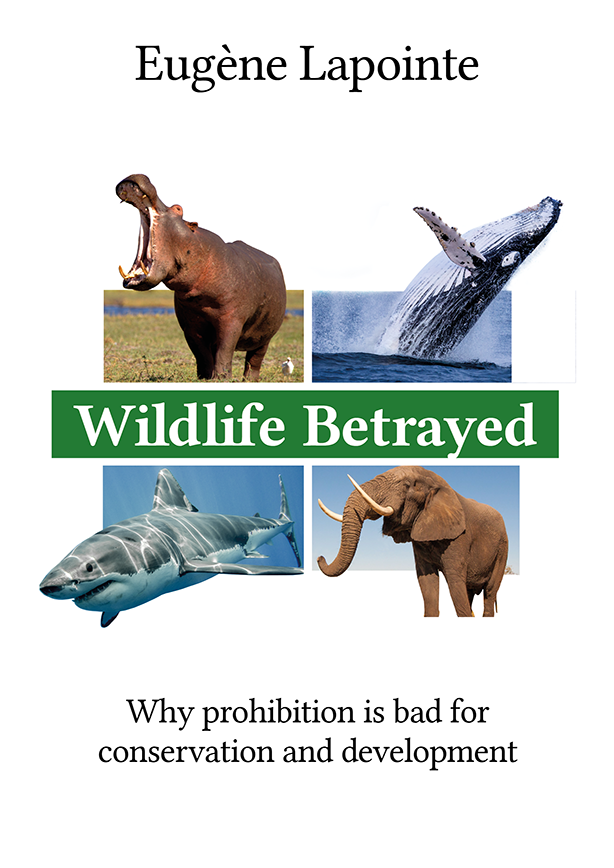IWMC promotes the interests of Aboriginal, Rural and Coastal Communities (ARCC), otherwise known as Indigenous Peoples and Local Communities (IPLCs). It also supports all other groups or individuals who consume or interact with wild species and their derivatives. This is a big, complex challenge because the interests of these diverse stakeholders are not coterminous.
As much as it is important to be alert to the agendas of the multilateral players who promote IPLC rights, it is important to be alert to the agendas of the ‘community leaders’ who are catapulted on to the world stage. Promoting IPLCs as advocates of wildlife appeals to several conservation and sustainable development multilateral players. In international and UN fora the key question would usually be: granted that (mostly) the IPLCs being ‘helped’ were picked by the NGOs for support (rather than the IPLCs choosing the NGOs, as one might a lawyer), what agendas are they signing up to in exchange for the advocacy?
To the prohibitionist, hands-off, Parks people, locals can seem like the sitting tenants of wildlife habitat and the only players conducting themselves so modestly as to be models of sustainability. (Though Parks people can also be, to put it politely, cavalier toward IPLC concerns.)
Contrariwise, to sustainable use proponents, IPLCs can seem precisely to be an alternative to prohibitionist ‘Keep Out’, ‘hands- off’, conservation: showing how wise use can be a model of good conservation. For instance, to its great credit, IUCN’s Initiative for Conservation in the Andean Amazon (ICAA) network and its Sustainable Use and Livelihoods Specialist Group (SULi) develop positive collaborative strategies that empower and incentivise local people to protect their environments.
And finally, to environmental justice people, IPLCs can seem to be the most deserving of the poorest of the poor, whose rights everyone else tramples on.50
If one prefers a view that wildlife habitat is the Common Heritage of Humankind, these problems are striking. A simplistic ‘Nature First’ approach might impose very great restrictions on forest dwelling IPLCs or even on fishing folk in coastal communities. A Sustainable Use for Sustainable Development approach might well require that IPLCs lose some of the rights that their advocates espouse for them. From a moral and conservation standpoint we need to examine the specificities of the unique social, geographical and biodiverse circumstances case by case.
Remote forest-dwellers are an endangered species, and there are few, if any, lost tribes to discover. Most IPLCs live relatively modern, though too often poverty-stricken and marginalised, lives in rural areas as diverse as that on offer in Oceania, Brazil, Africa, Russia, Norway and Canada.
Dispersed or displaced indigenous peoples in developing and developed countries are not always liked by settled (often agri- cultural) communities. Though, to be fair, the ill-feeling may be a two-way street. People united by physical proximity may loosely be called a community, but they may well not like other members of nearby communities; people from the next village are often seen as the enemy, whereas as those from another land are welcomed as honored guests.
IPLCs are mostly in a socially and economic precarious position and rarely in control of their own affairs. But the Faroe Islanders are an exception. They live in a fiercely fought for autonomous territory of the Kingdom of Denmark. In 2019 the $64,225 per capita income of the Faroe Islanders was higher than in the UK and USA. These wealthy indigenous ethnic people possess the right under the Agreement on the Conservation of Small Cetaceans of the Baltic and North Seas (ASCOBANS) to hunt pilot whales in the style (up to a point) of their ancestors.
Meanwhile, IWMC has always been uncomfortable with how the International Whaling Commission forces the Saint Vincent and the Grenadines’ Bequia Islanders, a nation with a per capita income of just $7.3k, to reapply regularly for their Aboriginal Subsistence Whaling ‘license’ to hunt large cetaceans. Put another way, the IWC makes a poor indigenous community beg–again and again–to be granted the right to hunt whales (a deeply rooted part of their culture, which provides a cheap and plentiful source of food security) off their shore.
By contrast, IWMC believes that the right of poor Bequia Islanders and rich Faroe Islanders to hunt big or small whales sustainably should be irrevocable under law. For similar reasons, IWMC backs the right of the likes of Japan, Iceland and Norway to hunt whales on the high seas responsibly.
A core mantra of those who support IPLCs, and especially the indigenous people, is that these are the ‘real guardians’ of the biodiversity. There’s lots of truth in the claim. But this recognition is often used as a cover for an intervention in their affairs. That’s the case among opponents of whaling, as we’ve just described. But it is especially true among advocates of ‘fortress conservation’ initiatives who end up betraying local people by relocating them against their will or by imposing bans and restrictions in pursuit of the ‘greater good’.
For example, the Washington-based NGO African Wildlife Foundation (AWF) believes that ‘humans are the biggest threat to Africa’s wildlife’ (in contrast, IWMC sees humanity as the solution).51Translated into action, this misanthropic prejudice leads AWF to consider Africans living close to wildlife as obstacles to be removed. Perhaps this explains why AWF stands accused along with The Nature Conservancy (TNC) of initiating and participating in the brutal expulsion of two thousand semi-nomadic Samburu families from the Laikipia National Park in Kenya. In 2011, AFW’s then President Helen Gichohi, a Kenyan citizen raised in Nairobi, denied the claims. She said that when the two NGOs bought the land in 2008, they did so in the expectation that no one lived there. To believe her account, we would have to accept that neither AWF nor TNC bothered to visit or research the history and contemporary usage of 7,000 hectares of land that they intended to conserve before they parted with millions of dollars to purchase it. Gichohi blamed the Kenyan Government for the expulsions which she claimed happened after AWF and TNC relinquished control. But the accusations of AWF’s involvement in the repression of local people, involving burnt villages, raped women, murdered nomads and forcible relocations, began on its watch. In other words, the first complaints against AWF were filed in court before the land was handed to the Government.52 53 54
To prevent such outrages occurring and to ensure transparent good governance, IWMC maintains that all IPLC stakeholders must be heard in international conservation fora. IPLCs’ human rights and or special privileges and protections must be enshrined in international treaties and national law. But what good is hear- ing from IPLCs if the intention is to ignore them?
References
50 Rosaleen Duffy’s work is a useful introduction to ‘environmental justice’ and ‘radical equity’. Massarella, Kate, et al (including R Duffy), ‘Transformation beyond conservation: How critical social science can contribute to a radical new agenda in biodiversity conservation’, CurrentOpinioninEnvironmentalSustainability49 (April 1, 2021): 79–87 2021 https://doi.org/10.1016/j.cosust.2021.03.005. Accessed 02/07/2021
51 See ‘Humans are the biggest threat to Africa’s wildlife’ https://www.awf.org/blog/ humans-are-biggest-threat-africas-wildlife Accessed 22/04/2022
52 IWMC suspects that AWF offloaded the land because the exposure of its brutal methods became a moral hazard. But you can judge for yourself how credible AWF’s president Helen Gichohi’s explanation is by reading this transcript of her interview for a Channel Four documentary from 2011: ‘A question for the African Wildlife Foundation: ‘Is this what conservation is really about?” https://redd-monitor. org/2011/12/14/a-question-for-african-wildlife-foundation-is-this-what-conservation- is-really-about/ Accessed 08/05/2022
53 This transcript of a University of Oklahoma Honors College podcast from 2018 titled ‘A place Without People: The Aftermath off the African Wildlife Foundation’s Urge to help’ provides a useful and disturbing account of the scandal surrounding AFW in Kenya. https://theurgetohelp.com/podcasts/a-place-without-people-the-aftermath-of-the-african-wildlife-foundations-urge-to-help/ Accessed 28/04/2022
54 This article provides a summary of the contested nature of accusations made against AWF, citing its denial and supporting evidence that brings it into question, ‘Africa Wildlife Foundation faces lawsuit from indigenous community in Kenya’ https://news. mongabay.com/2012/03/africa-wildlife-foundation-faces-lawsuit-from-indigenous- community-in-kenya/ Accessed 28/04/2022


